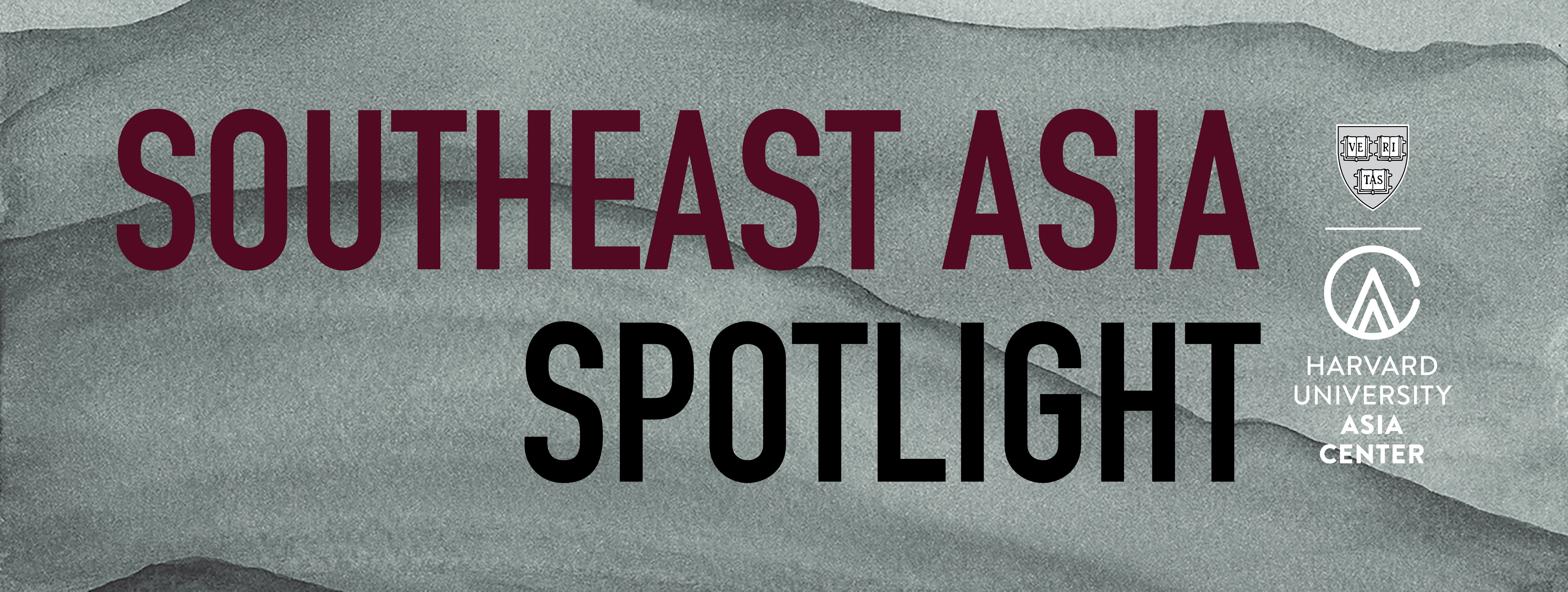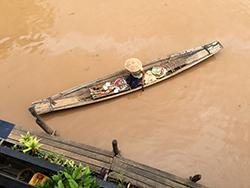Southeast Asia Spotlight

Southeast Asia Spotlight - 11/1/24 - Seven Questions for Southeast Asia with Sugata Bose
Sugata Bose
Gardiner Professor of Oceanic History and Affairs, Harvard University
FOCUSING ON THE PARTS THAT PERTAIN TO SOUTHEAST ASIA, WHAT IS THE FOCUS OF YOUR ACADEMIC WORK, AND HOW DID YOU ARRIVE AT IT?
As early as my doctoral work on the history of the peasantry, I noticed that agrarian regions in South and Southeast Asia were not discrete entities, but connected and inter-dependent on one another. Later I analyzed the specialized flows of capital and labor, skills and services, ideas and culture across the Bay of Bengal in my 2006 book A Hundred Horizons: The Indian Ocean in the Age of Global Empire. The final armed struggle in the climactic phase of India’s liberation movement was waged from Southeast Asia. That featured in a chapter of my 2011 book His Majesty’s Opponent: Subhas Chandra Bose and India’s Struggle against Empire. Finally, my most recent book Asia after Europe: Imagining a Continent in the Long Twentieth Century (Cambridge, MA: The Belknap Press of Harvard University Press, 2024) includes Southeast Asian visions of anti-colonial Asian solidarity and the participation of people from Southeast Asia in a broad range of intellectual, cultural and political conversations in search of a pluralized continentalism.
WHAT IS THE BIGGEST UNANSWERED QUESTION IN YOUR RESEARCH?
Can Muslim and Buddhist universalisms peacefully co-exist in the 2020s as they had in the 1920s when, for example, Muslims, Buddhists, and Hindus came together at the Shwedagon in Yangon during the non-cooperation and Khilafat movement. Or has the inheritance of the modern post-colonial nation-state form destroyed that creative possibility?
WHAT DISCIPLINE, OTHER THAN YOUR OWN, DO YOU THINK COULD ADD AN INTERESTING DIMENSION TO YOUR WORK AND WHY?
My work has always been on the cusp of history and economics. A primary focus has been on the Great Depression of the 1930s and the ways in which that global economic crisis ruptured inter-regional specialization and sowed the seeds of social and political conflict in Southeast Asia. I have also drawn on insights from political science and anthropology as exemplified by the great inter-disciplinary scholar James C. Scott, who passed away this year, and the late anthropologist Stanley J. Tambiah, who was such a wonderful colleague when I first moved to Harvard.
HOW WILL THE NEXT GENERATION OF SCHOLARS LOOK AT AND STUDY THE REGION DIFFERENTLY THAN PRIOR GENERATIONS?
The younger generation of scholars have already broken free of the constraints imposed by the hard borders of nation-states and the rigid boundaries of area studies. New research will be decidedly more transnational in scope and method and explore more fully Southeast Asia’s links with South, East, and West Asia in a global context.
WHAT WOULD YOU LIKE TO SEE AT HARVARD IN SUPPORT OF SOUTHEAST ASIA STUDIES?
I would like to see Harvard make half a dozen excellent faculty appointments in modern and contemporary South and Southeast Asian Studies in the key social science and humanities departments. I will be teaching a lecture survey on “Modern Southeast Asia” for the third time in Spring 2025. I am the only faculty member in the Department of History covering South Asia and the vast inter-regional arena of the Indian Ocean including Southeast Asia. We simply need more faculty and courses.
WHAT IS A RECENT BOOK, FILM, OR OTHER MEDIA (ACADEMIC OR OTHERWISE) FROM OR ABOUT SOUTHEAST ASIA THAT YOU RECOMMEND?
I would strongly recommend Eric Tagliacozzo’s recent book In Asian Waters, which takes its readers on an adventurous half a millennium long voyage of discovery, tracing historical connections from the Arabian Sea through the Bay of Bengal to the South China Sea. Tagliacozzo is a historian of Indonesia who has in this book placed Southeast Asia in the larger frame of the Indian and Pacific Oceans.
WHAT IS THE MOST MEMORABLE SOUTHEAST ASIAN MEAL THAT YOU'VE HAD?

I have had many delicious meals in Singapore and Bangkok, which are two of the culinary capitals of the world, as well as in Kuala Lumpur and Yangon. But perhaps the most memorable one was a simple lunch at a restaurant propped up on bamboo poles in the watery landscape of the Shan state in Myanmar. I looked over the railing from my table and witnessed an exquisite picture of a woman wearing a traditional hat in a boat selling her wares.
....................................................................................................................................................................................................
October 18, 2024 - Yi Ning Chang, Department of Government
October 4, 2024 - Vincenzo Bolletino, Harvard Humanitarian Initiative
September 20, 2024 - Michael Puett, Harvard Asia Center Director
September 13, 2024 - Sakti Suryani, Indonesian Language Preceptor
September 6, 2024 - Hoa Le - Vietnamese Language Senior Preceptor
August 30, 2024 - Lady Aileen Orsal - Filipino Languages Preceptor
....................................................................................................................................................................................................
Please consider subscribing to the Southeast Asia Spotlight, the Asia Center's weekly mailing of Southeast Asia events and resources.



